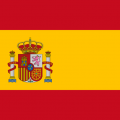
The PokerStars Journey Back to New Jersey and the United States

David Baazov has navigated the turbulent acquisition of PokerStars and somehow managed to return the once-disgraced online poker network to the United States. (Image: casinoconnectionac.com)
PokerStars will return to the United States through New Jersey in 2016 five years after the Department of Justice seized its .com domain on April 11, 2011, poker’s Black Friday.
The world’s largest online poker network has long wished to return to the states, a goal that was about as popular among legal and political leaders as tax increases are among the general population.
But lo and behold, PokerStars is back, and it’s nothing like the PokerStars the Scheinbergs founded in 2001.
Today, the platform is owned by multibillion-dollar company Amaya, a Canadian gaming conglomerate that is publicly traded on both Nasdaq and the Toronto Stock Exchange.
Amaya has worked tirelessly since acquiring PokerStars for $4.9 billion in June of 2014 to repair its image in the eyes of authorities, tie up any loose ends regarding transparency, and effectively reach the US market.
It was a monumental wager and one that required many chips to be thrown into the pot, but in the end the call is slowly being validated as PokerStars readies for its return to New Jersey.
Hostile to Host
2015 will forever be known as the year PokerStars was finally granted permission to return to the United States, and Caesars was arguably a crucial force in that development. In the early part of the year, Caesars reversed its longstanding position on PokerStars to one of opposition to ally.
Owners of poker’s most visible brand, the World Series of Poker, Caesars decided to join forces with the game’s most dominant online destination.
“We need to focus on where our opposition really lies, and clearly it’s not Amaya and PokerStars,” Caesars executive Jan Jones Blackhurst said at the time. “They are a strong ally.”
In California, additional support was being garnered from the Morongo and San Manuel bands of Mission Indians, as well as the Hawaiian Gardens, Bicycle, and Commerce casinos.
Amaya formed a coalition with said entities to launch the Californians for Responsible iPoker, the organization using PokerStars celebrities like Daniel Negreanu and Chris Moneymaker to spread awareness across the Golden State.
It was all part of a nationwide effort to calm any fears regarding PokerStars and strip the network of its “Bad Actor” label.
DGE Goes MIA
In July of 2013, PokerStars reached an agreement with land-based Resorts Casino in Atlantic City to apply for an interactive gaming license, as is required by the state’s Division of Gaming Enforcement (DGE). The application was mulled over for months on end with little public declaration on causes for the delay in approving or disapproving.
Certainly Amaya’s acquisition slowed the process, and time after time lawmakers in the Garden State hinted they expected a decision soon.
State Sen. Ray Lesniak (D-District 20) was the most vocal critic of the DGE, the longtime politician responsible for Jersey’s iGambling industry going so far as to blame Republican Gov. Chris Christie for the holdup.
DGE Director David Rebuck brushed off such allegations, saying his office was simply “engaged in a very thorough, comprehensive, detailed review” regarding the Amaya purchase of PokerStars.
Approval Granted
On September 30, the poker world received the news it yearned for so long: Amaya had been granted an operational waiver to return PokerStars to New Jersey.
“I want to thank the DGE for their thorough and fair review of our business,” Amaya CEO David Baazov said of the permit. “We look forward to bringing our popular brands, innovative technology, marketing prowess and world-class security and game integrity to the growing New Jersey online gaming market.”
A series of conditions including the termination of certain employees the DGE found to lack the good character and honesty it requires, and PokerStars settling any remaining outstanding funds from 2011 has pushed its triumvirate homecoming into the New Year.
But it’s coming.















0 Comments